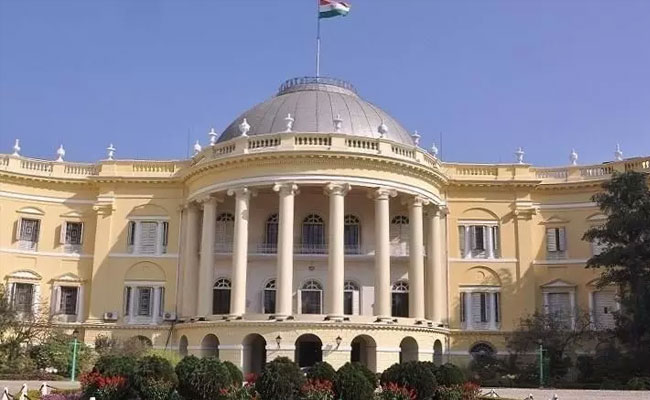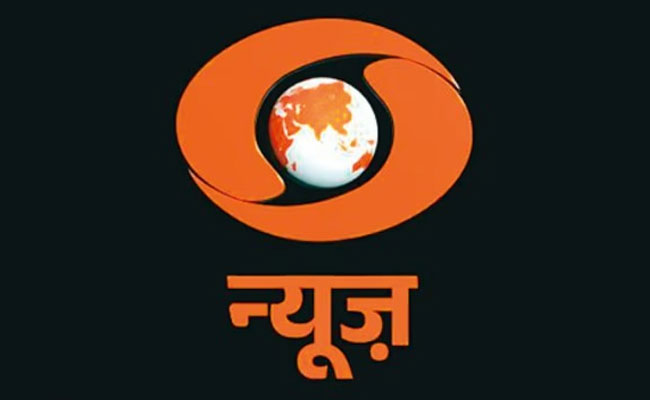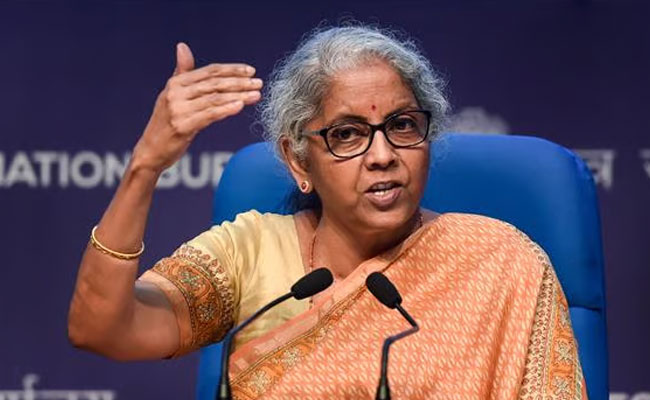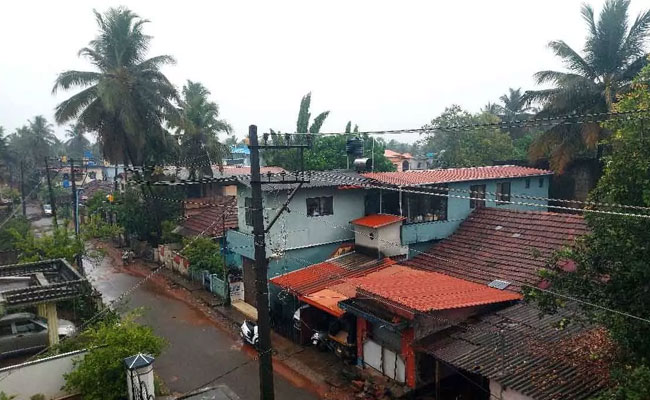New Delhi: WhatsApp will allow users to send frequently forwarded messages to only one chat at a time as part of efforts to curb spreading of misinformation amid the coronavirus pandemic.
This limit will be in place once a message has been previously forwarded five times or more.
The latest move comes as countries, including India, are initiating measures to tackle the spread of rumours, fake news and misinformation on social media platforms.
"We are now introducing a limit so that these messages can only be forwarded to one chat at a time...we've seen a significant increase in the amount of forwarding which users have told us can feel overwhelming and can contribute to the spread of misinformation," the Facebook-owned WhatsApp said in its blog on Tuesday.
Last year, WhatsApp launched the 'forward' label with double arrows to indicate that the message did not originate from a close contact. It also limited message 'forwards' to five chats at a time.
Platforms like WhatsApp are being increasingly used by people amid lockdowns and social distancing measures to prevent the spreading of coronavirus infections.
The company said it believes it is important to slow the spread of these messages to keep WhatsApp a place for personal conversation.
The company, which has over 400 million users in India, said its previous steps of setting limits on forwarded messages to constrain virality had led to a 25 per cent decrease in message forwards globally at a time.
With billions of people unable to see their friends and family in person due to COVID-19, people are relying on WhatsApp more than ever to communicate, WhatsApp stated.
"People are talking to doctors, teachers, and isolated loved ones via WhatsApp during this crisis. That's why all your messages and calls on WhatsApp are end-to-end encrypted by default to give you a secure place for your most personal conversations," it added.
WhatsApp said that in addition, it is also engaging directly with non-governmental organisations (NGOs) and governments, including the World Health Organization and over 20 national health ministries, to help connect people with accurate information.
"Together, these trusted authorities have sent hundreds of millions of messages directly to people requesting information and advice," it added.
WhatsApp is also testing a feature that would display a small magnifying glass next to any frequently forwarded messages.
Users will then be able to click that and be taken to a web search for the message, with the intention of letting them find articles that may debunk the message or shed further light on any claims found within it -- and not forward them on if they find the message is not true.
In mid-March, even as many states had begun imposing curbs and movement restrictions to fight the spread of coronavirus pandemic, WhatsApp had rolled out 'Coronavirus Information Hub' to provide simple, actionable guidance for health workers, educators, community leaders, non-profit entities, local governments and local businesses that rely on WhatsApp to communicate.
Indian government's dedicated WhatsApp chatbot MyGov Corona Helpdesk, which aims to provide timely updates and help citizens clear their queries on COVID-19, has already garnered over 2 crore users.
Prime Minister Narendra Modi on March 24 announced a complete lockdown of the entire country for 21 days in an unprecedented move to halt the spread of coronavirus, shortly after which the Centre said road, rail and air services will remain suspended during this period.
As on early Tuesday, the pandemic claimed 114 lives in the country and the number of cases increased to 4,421 in India.
In the past, WhatsApp has faced flak from the government after a series of mob-lynching incidents, triggered by rumours circulating on WhatsApp, claimed lives.
Under pressure to stop rumours and fake news, WhatsApp had then restricted forwarding messages to five chats at once as well as removed the quick forward button for media messages in India. This feature was later extended globally.
WhatsApp, as part of its efforts, has been running campaigns, offering tips to users on how to spot misinformation.
However, WhatsApp has so far, resisted the government's demand for identifying message originators, arguing that such a move would undermine the end-to-end encryption and the private nature of the platform, creating potential for serious misuse.
Let the Truth be known. If you read VB and like VB, please be a VB Supporter and Help us deliver the Truth to one and all.
Kolkata (PTI): The Raj Bhavan here moved the Election Commission of India, urging it to identify and take strong action against officials in the office of the Chief Electoral Officer (CEO) of West Bengal who may have "leaked names of gangsters and goons" to political parties, sources said on Saturday.
In the wake of the ongoing general elections, the office of Bengal Governor C V Ananda Bose had, using its own mechanism, compiled a list of suspected criminals across the state who could be used by political parties to intimidate voters on or before poll dates besides creating other law and order situations.
In the second week of March, the Raj Bhavan had shared a list of such goons and anti-social elements with top officials of the CEO's office, West Bengal, through the state Director General of Police for appropriate pre-emptive action, an official said.
"A few senior officials of the CEO office, West Bengal may have leaked the list of the suspected criminals, provided by the Raj Bhavan, to top political leaders of the state," the source told PTI and suggested that, in doing so, may have thwarted the governor's attempts to reign in criminal activities during the polls.
The Raj Bhavan move comes in the wake of sustained face-offs between the governor's office and the state administration over political and administrative matters in Bengal.
The move by Bose was also made within 48 hours of the Trinamool Congress complaining about him with the CEO for "repeatedly illegally interfering with the ensuing Lok Sabha Elections, 2024" after he reportedly made initial plans to visit poll areas during the silent period and the first phase on polls in north Bengal, an idea which the Governor later scrapped.
The names of anti-social elements were gathered based on complaints received from people over the phone at the 'Peace Room' established by Governor Bose inside the Raj Bhavan premises and also from grassroots feedback he received during his field visits, the source said.
"These goons and anti-social elements are likely to disrupt the voting process by scaring the common voters during the polls in this state. This disclosure of confidential and sensitive information is a gross violation of Clause E of the ECI manual (Document No: 324.6.EPS:MA: 004:2023)," he said.
The official, however, refused to disclose the name of the political party or parties to whom the 'confidential' list was allegedly leaked.
"… This exercise of identifying the persons responsible for making the voters/villages vulnerable shall be undertaken polling station wise indicating the name of (the) village, hamlet, names of the potential troublemakers, including their address, and so on. This work has to be done by maintaining complete confidentiality of the informers/source…" Clause E of the ECI manual states.
Hence, the Raj Bhavan source added, "It was incumbent upon the Election Commission authorities of Bengal to maintain confidentiality of the sensitive information on goons."
The CEO of West Bengal received a substantial number of complaints related to violence and voter/polling agent intimidation from three Lok Sabha constituencies – Cooch Behar, Jalpaiguri and Alipurduars – which went for polls on Friday during the first phase of elections.
The complaints were lodged by both the ruling Trinamool Congress as well opposition parties like the BJP, Left and Congress amid assertions from the CEO’s office that polling was "largely peaceful".
Earlier on Wednesday, incidents of violence were reported during Ram Navami processions from Saktipur and Beldanga in Murshidabad district where at least four persons were injured.
The ECI on Friday suspended the OCs of the two police stations for "failing in containing and preventing repeated communal violence in areas under their jurisdiction".
Apprehensive that goons and anti-social elements would be used to scare voters by creating an atmosphere of violence and would be indulged in other electoral malpractices like casting of false votes, multiple opposition party leaders as well as those of the Trinamool Congress have also registered complaints with the poll body.
The ECI, incidentally, has asked the Union Home ministry to deploy 920 companies of central forces in West Bengal, which is the highest in terms of such deployment anywhere in the country for this year's ongoing Lok Sabha elections.





